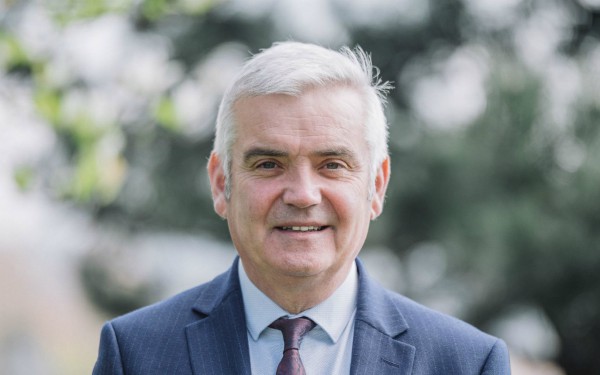
Social Work England has called for a consistent approach to supporting early career social workers, amid government plans to replace the assessed and supported year in employment (ASYE) in council children’s services, but not in other sectors.
The regulator said it was encouraging the government to “pursue an approach which would eventually ensure consistency and equity of support and training for newly qualified social workers across the whole of the profession”.
The Department for Education (DfE) is currently developing a five-year early career framework for social workers in local authority children’s services in England, for implementation in 2026, as part of its children’s social care reform programme.
About the early career framework
The first part of this would be a two-year programme of induction and support for newly qualified social workers that would replace the ASYE. This would be followed by a further three years of career development, in which social workers would have the opportunity to become expert practitioners in specialist areas, such as child protection.
The ECF will comprise a framework setting out the knowledge and skills required of social workers at practitioner and expert practitioner levels, a programme of support and training for social workers to achieve these requirements and a system of assessment against them.
Eight areas are currently involved in developing the ECF, with the DfE currently looking for others to join its early adopters programme.
Currently, there is broad equality in the post-qualifying support offer to newly qualified social workers (NQSW), regardless of sector and who employs them.
The DfE and the Department of Health and Social Care (DHSC) provide funding to Skills for Care to deliver the ASYE programme to staff in children’s and adults’ services, respectively, across all employment sectors, through a single framework.
Social Work England chief’s call for consistency
In a session during Social Work England’s online event, Social Work Week, its chief executive, Colum Conway, said it was “really important” that the ECF worked for the whole profession.
In a subsequent statement to Community Care, Conway added: “We are engaging with the Department for Education and the Department of Health and Social Care to explore how an early career framework may evolve or be applied in different settings and contexts.
“We are encouraging government to pursue an approach which would eventually ensure consistency and equity of support and training for newly qualified social workers across the whole of the profession. We see value in an early career framework structure and approach that can be adapted to suit different areas of social work practice.”
The issue was also addressed in a Social Work Week on the DfE’s social care reform programme, after a delegate questioned how far the department was working with the DHSC in relation to ensuring consistent support to NQSWs.
Framework ‘will not limit social workers’ job mobility’
In response, James O’Donoghue, deputy director, social work training, development and leadership, said: “We talk a lot to DHSC about this and they are very interested in what we’re doing [with the early career framework] and they may take forward their own plans in the future.
He said there was already specialisation within the sector with there being separate ASYEs for children’s and adults’ services, and the departments were looking to ensure that the ECF did not limit people’s ability to move between the sectors.
“We believe that extra support for child and family social workers is a benefit and will not limit mobility between the sectors,” he added.
The DHSC was approached for comment for this article but had not responded at the time of publication.





 Family help: one local authority’s experience of the model
Family help: one local authority’s experience of the model  ‘I spent the first three months listening’: how supportive leadership can transform children’s services
‘I spent the first three months listening’: how supportive leadership can transform children’s services  How senior leaders in one authority maintain a culture of excellence
How senior leaders in one authority maintain a culture of excellence  How staff support ensures fantastic outcomes for children and families
How staff support ensures fantastic outcomes for children and families  Workforce Insights – showcasing a selection of the sector’s top recruiters
Workforce Insights – showcasing a selection of the sector’s top recruiters 

 Facebook
Facebook X
X LinkedIn
LinkedIn Instagram
Instagram
If Social Work England was any kind of decent regulator it would be explaining why it demeans & persecutes its own membership. It has yet to apologise to Rachel Mead for its heinous conduct towards her. Shameful.
This is just an attempt to exploit newly qualified social workers and pay them less for a longer period. The ASYE program is more than enough, particularly for those who have been in the industry for five years or more. Local authority practitioners with five years or more experience should not have to do this. A lot of experienced frontline practitioners with a wealth of knowledge will be put off from entering the social work field because of this.
I questions some social workers idea of professionalism. Social work is supposed to be a profession where there should be clear evidence of what knowledge , skills and values are underpinning their work especially decision making. Unfortunately there are a lot of social workers (experienced included) who do not explicitly and consciously use and evidence their underpinning knowledge in their decision making and become process driven.
Reflection is key to social work and having a strong framework is key to professionalism and our role. What is needed is investment in social work and increase in more social workers so their is time to do this
But what about the increasing numbers of unqualified social workers who lack any professional bodies oversight? Given the green light through working together their numbers are rapidly increasing replacing many qualified roles for children in need roles, including assessing and holding cin and lac children. While some local authorities are responsibile in training and development, this is inevitably going to increase risk for vulnerable families.
There is increasing inequality between children and adult social work. More money is invested in children’s social work. Children’s services get twice the grant money compared to adults to develop/support ASYE programmes. There are increasing examples where more additional incentives are being paid to children’s social workers and not paid to adult social workers ie retention payments, golden handshakes which is increasing the gap.
Children’s and adult services have both had a increase on demand and complexity. They are working with similar challenges and societal issues; don’t forget that one is a child one day (17yrs 365 days) and an adult the next (18 yrs old). Has the risk/concerns and lived experience changed or just our attitude